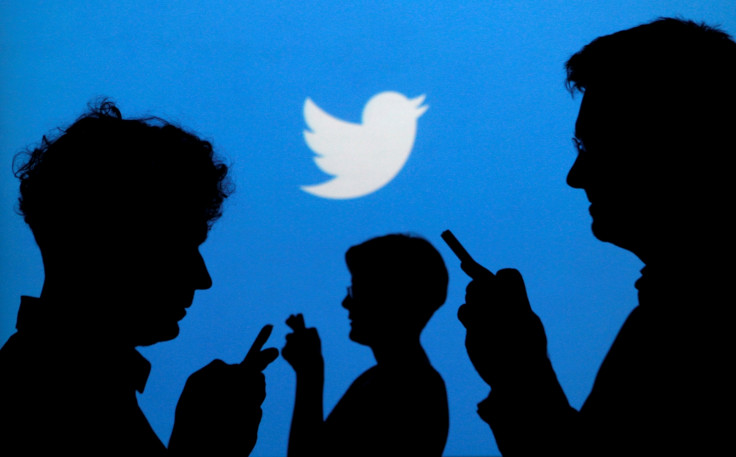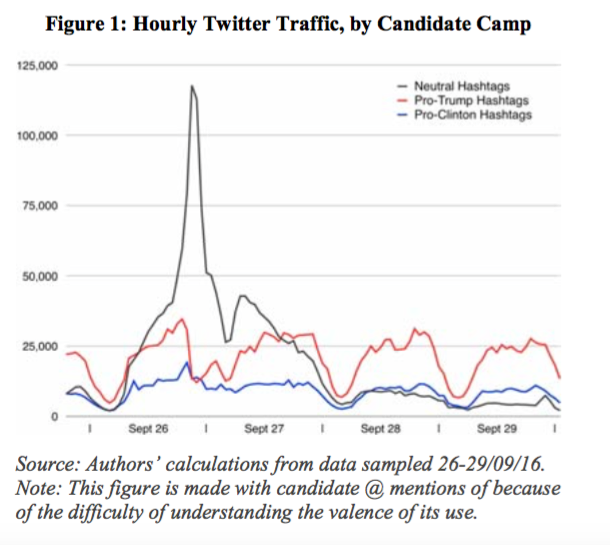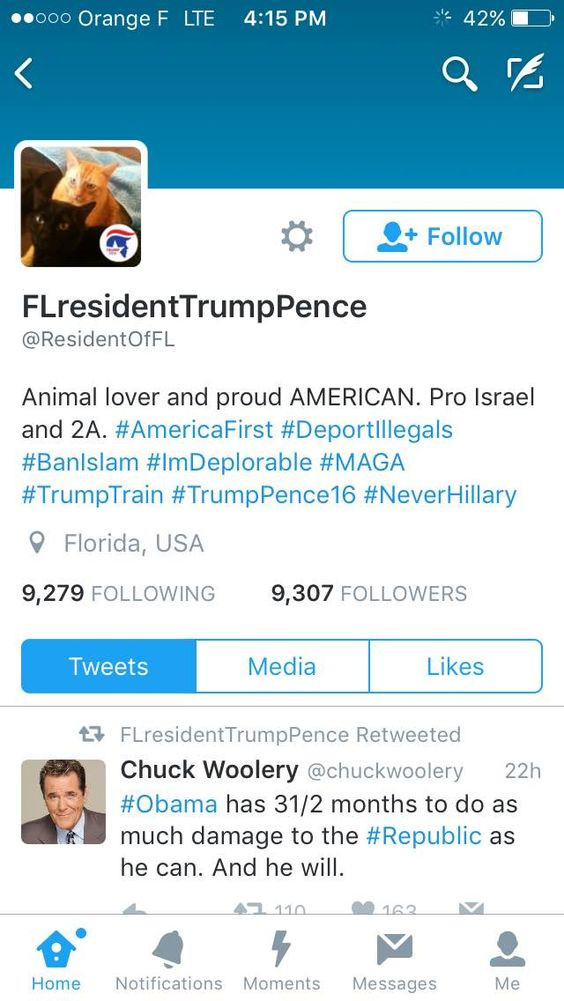Twitter bots push debate in favour of Donald Trump
During first Presidential debate fake accounts generated double the tweets for Trump than Clinton.

During the first Presidential debate Twitter was flooded with messages from fake, automated accounts supporting Republican nominee Donald Trump.
In fact, about a third of traffic on the social media platform about the Republican was driven by these bots during the debate, finds a new analysis from Oxford University's Internet Institute.
Bots are accounts powered by computer code to post content themselves with occasional human intervention to curate it. They can gather up information about topics trending online and quickly amplify that message.
For years they have been used "to manipulate public opinion, choke off debate, and muddy political issues" in societies around the world the paper said.
The analysis carried out by Oxford Professor of Internet Studies, Philip Howard, and colleagues from the University of Washington and Corvinus University, also found that a fifth of pro-Clinton messages were automated.
The study, which has not yet been peer reviewed, looked at more than 9million tweets from 2million users over the four days following the first Presidential debate on September 26, 2016.
Specifically it gathered twitter hashtags identifying trending topics that were actively being used and associated with the candidates.

The researchers found Twitter traffic for pro-Trump hashtags was more than double those associated with Democrat Hillary Clinton's campaign. Importantly, it also found that the rise in Twitter traffic during the debate was driven mostly by real people. They used hashtags that were more neutral.
Telling whether an account is actually a bot largely comes down to volume, the analysis finds. The top 100 automated accounts studied generated about 500 tweets per day. Regular accounts average about one post a day.
Using social media platforms for political influence has become common in democracies as well as more repressive regimes around the world.
Bots are ever present. The Oxford study points out: "Political algorithms have become a powerful means of political communication for 'astroturfing' movements — defined as managing the perception of grassroots support."

© Copyright IBTimes 2025. All rights reserved.






















